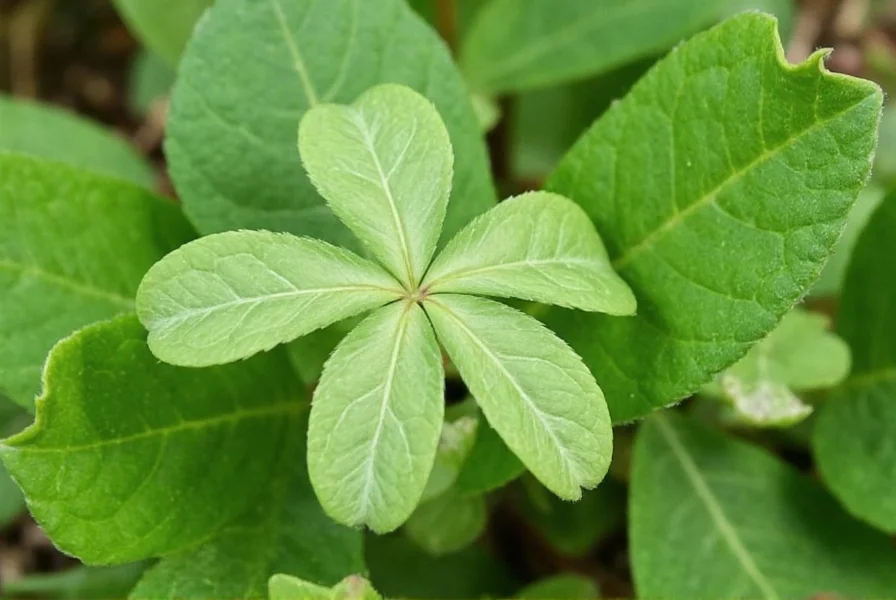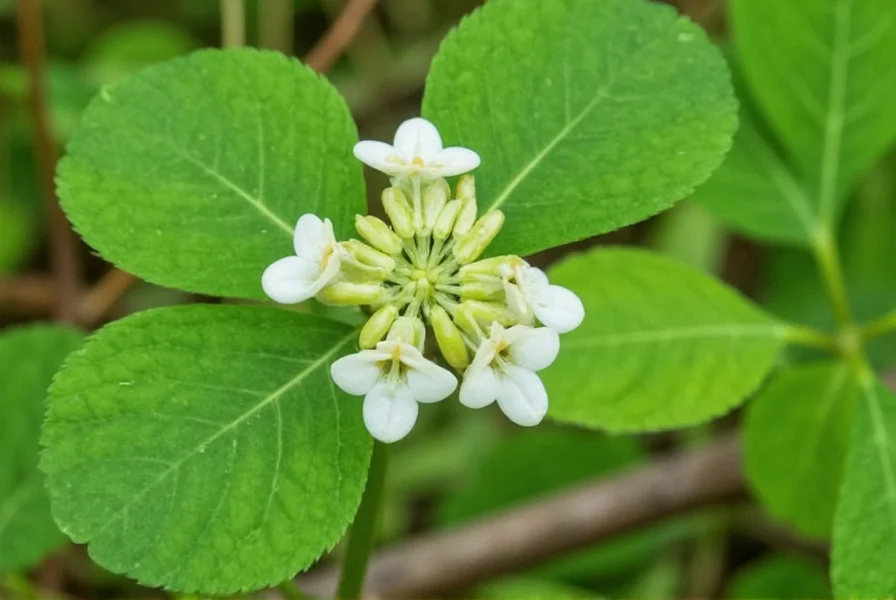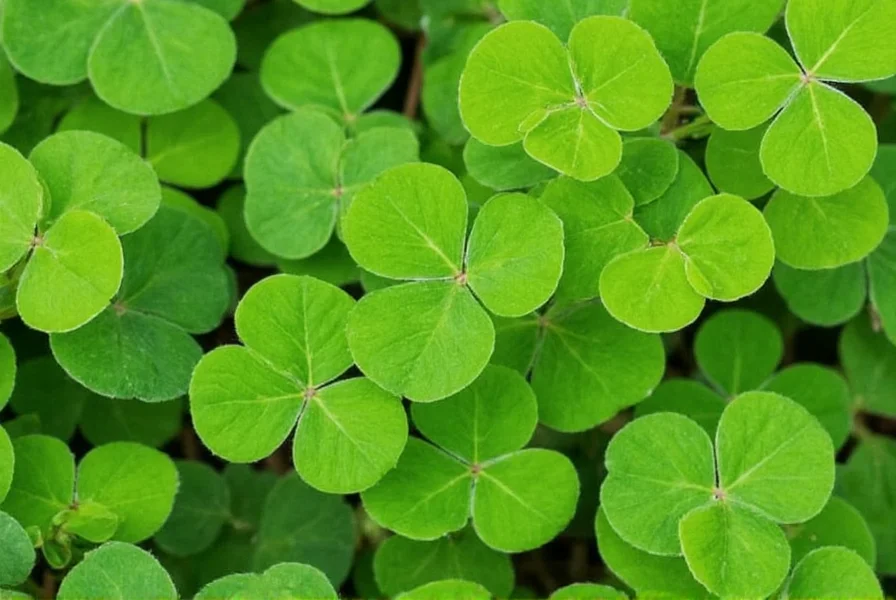When researching legend clover characteristics, it's essential to understand this specific white clover cultivar represents a significant advancement in forage and turf science. Developed through selective breeding, Legend Clover bridges the gap between common white clover and larger ladino types, offering unique benefits for various applications.
Understanding Legend Clover's Botanical Profile
Scientifically classified as Trifolium repens 'Legend', this cultivar belongs to the graceland subgroup of white clovers. Unlike common white clover varieties that typically feature small leaves (under 1 inch), Legend Clover produces intermediate-sized leaves measuring approximately 1.5 inches across. This characteristic places it between standard white clover and the larger ladino types in terms of growth habit and biomass production.
One of Legend Clover's most valuable attributes is its stolon density. The plant develops a robust network of above-ground stems that root at nodes, creating a dense mat that effectively suppresses weeds while improving soil structure. This characteristic makes it particularly valuable for legend clover for pasture improvement projects where soil erosion control is a priority.
Key Advantages Over Traditional White Clover Varieties
When comparing legend clover vs common white clover, several distinct advantages emerge:
| Characteristic | Legend Clover | Common White Clover |
|---|---|---|
| Leaf Size | Intermediate (1.5 inches) | Small (under 1 inch) |
| Stolon Density | High | Moderate |
| Drought Tolerance | Excellent | Fair |
| Winter Hardiness | Superior | Good |
| Recovery Rate | Rapid | Moderate |
These differences translate to practical benefits for farmers and landscapers. The improved drought tolerance means legend clover for dry climates performs better than traditional varieties during water-stressed periods. Its superior winter hardiness extends the growing season in northern regions, providing earlier spring growth and later fall productivity.
Optimal Growing Conditions and Establishment
For successful legend clover planting guide implementation, understanding proper establishment techniques is crucial. Legend Clover thrives in well-drained soils with pH between 6.0-7.0, though it demonstrates reasonable tolerance to slightly acidic conditions down to pH 5.5.
When establishing new stands, seed at 2-4 pounds per acre when drilling or 3-5 pounds when broadcasting. The ideal planting depth ranges from 1/8 to 1/4 inch. For legend clover lawn applications, overseeding existing turf at 1-2 pounds per 1,000 square feet works effectively when done in early fall or spring.

Practical Applications Across Different Settings
The versatility of Legend Clover makes it suitable for multiple applications. In agricultural settings, it serves as an excellent companion crop in legend clover for pasture mixtures with grasses like orchardgrass or fescue. The nitrogen-fixing capabilities reduce fertilizer requirements while improving forage quality.
For residential applications, Legend Clover offers a sustainable alternative to traditional turfgrass. Homeowners seeking legend clover for lawn replacement appreciate its lower water requirements, reduced mowing frequency, and ability to thrive in poor soils where conventional grasses struggle.
Environmental projects benefit from Legend Clover's soil stabilization properties. Its dense root system makes it ideal for legend clover for erosion control on slopes, stream banks, and disturbed areas. Unlike some aggressive ground covers, Legend Clover maintains a manageable growth habit without becoming invasive.
Maintenance Requirements and Management
Proper management ensures Legend Clover performs optimally throughout its lifecycle. Unlike traditional white clover varieties that may decline after 2-3 years, Legend Clover typically maintains productivity for 4-5 years with appropriate care.
Fertilization needs are minimal due to nitrogen fixation, though phosphorus and potassium applications based on soil tests support optimal growth. For legend clover weed control, maintaining proper grazing pressure or mowing height prevents weed encroachment without requiring chemical interventions in most cases.
During drought periods, allowing the stand to go dormant rather than stressing it with irrigation preserves the plant's long-term viability. This legend clover drought management approach aligns with sustainable landscaping practices that conserve water resources.
Economic and Environmental Benefits
The economic case for Legend Clover becomes apparent when calculating long-term savings. While initial establishment costs may slightly exceed traditional turfgrass, the reduced water, fertilizer, and maintenance requirements deliver significant savings over time. For agricultural operations, the improved forage quality translates to better animal performance without additional feed costs.
Environmentally, Legend Clover contributes to soil health through nitrogen fixation, organic matter accumulation, and improved soil structure. These legend clover soil benefits create a positive feedback loop that enhances overall ecosystem function in both agricultural and urban settings.

Where to Source Quality Legend Clover Seed
When seeking legend clover seed suppliers, look for certified seed with documented germination rates above 85%. Reputable agricultural suppliers and specialty forage companies typically carry this cultivar. Always verify the seed tag for purity percentage and inert matter content to ensure you're getting quality planting material.
For homeowners interested in legend clover for residential lawns, several online retailers offer smaller quantities suitable for yard applications. Check whether the seed has been inoculated with the appropriate Rhizobium bacteria for optimal nitrogen fixation, as this significantly impacts establishment success.
Conclusion: The Future of Sustainable Land Management
As interest in sustainable land management grows, Legend Clover represents a practical solution that bridges traditional agriculture and modern environmental concerns. Its balanced characteristics make it adaptable to diverse applications while delivering measurable benefits for soil health, water conservation, and economic efficiency. Whether implementing legend clover for farm pastures or residential landscapes, this versatile cultivar offers a proven path toward more resilient and productive land use.
Frequently Asked Questions
What makes Legend Clover different from regular white clover?
Legend Clover features intermediate-sized leaves (about 1.5 inches) compared to regular white clover's smaller leaves (under 1 inch). It has higher stolon density, superior drought tolerance, better winter hardiness, and faster recovery rates than traditional white clover varieties, making it more persistent in various growing conditions.
Can Legend Clover be used in residential lawns?
Yes, Legend Clover works well as a sustainable lawn alternative. It requires less water, fertilizer, and mowing than traditional turfgrass. For residential use, overseed existing lawns at 1-2 pounds per 1,000 square feet in early fall or spring. It tolerates moderate foot traffic and creates a dense, weed-resistant ground cover that stays green longer during dry periods.
How long does Legend Clover typically last in a pasture or lawn?
With proper management, Legend Clover typically maintains productivity for 4-5 years, significantly longer than common white clover varieties which often decline after 2-3 years. Its superior persistence comes from dense stolon development and better stress tolerance, though rotational grazing or proper mowing practices are essential for maximizing stand longevity.
Does Legend Clover require special soil conditions?
Legend Clover performs best in well-drained soils with pH between 6.0-7.0, but shows reasonable tolerance down to pH 5.5. It requires adequate phosphorus and potassium (based on soil tests) but fixes its own nitrogen. While it prefers consistent moisture, its superior drought tolerance allows it to survive dry periods better than most white clover varieties, making it suitable for a wider range of growing conditions.
Is Legend Clover invasive or difficult to control if unwanted?
No, Legend Clover is not considered invasive. Unlike some aggressive ground covers, it maintains a manageable growth habit and doesn't spread uncontrollably. It can be easily controlled through regular mowing or selective herbicides if removal becomes necessary. Its growth pattern is more contained than many other clover varieties, making it suitable for mixed plantings without dominating other species.











 浙公网安备
33010002000092号
浙公网安备
33010002000092号 浙B2-20120091-4
浙B2-20120091-4